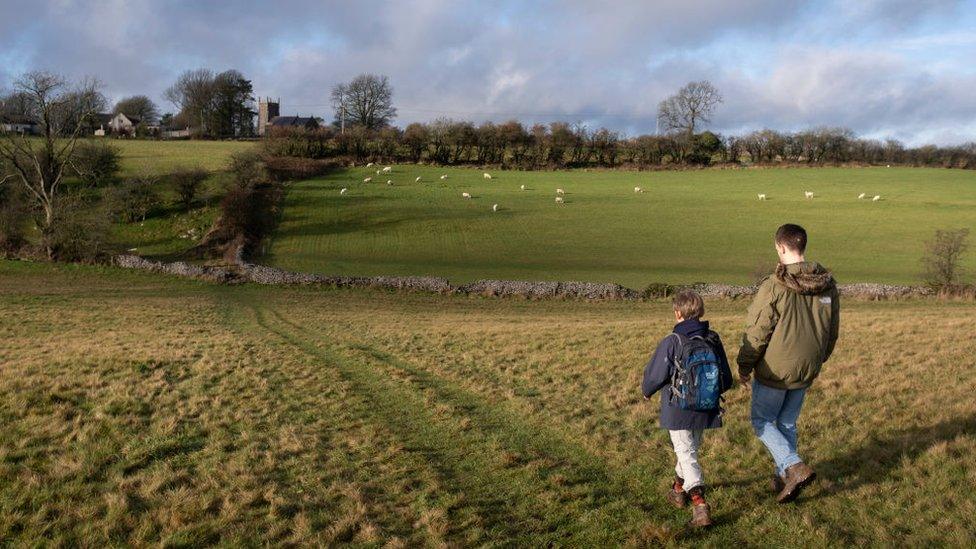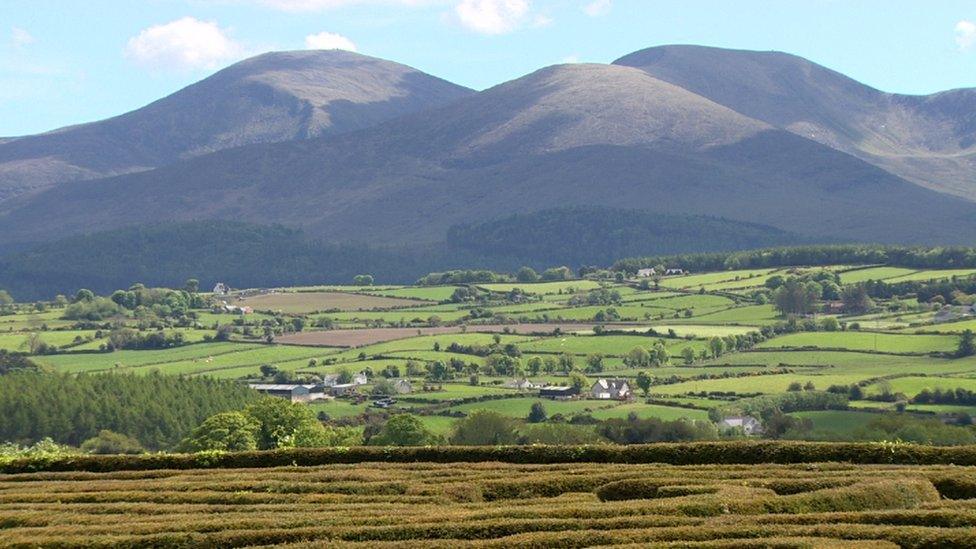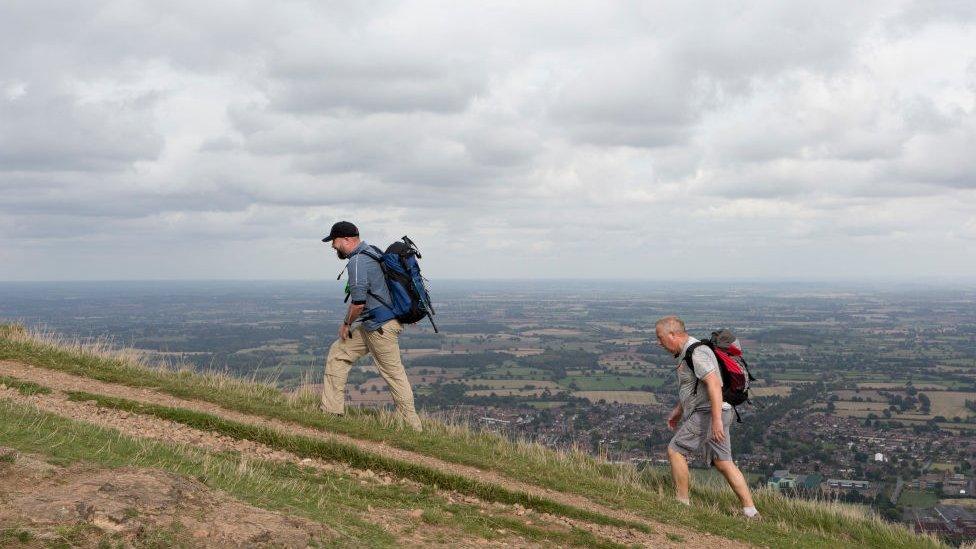Deadline to register forgotten paths scrapped
- Published
- comments

A deadline to register forgotten historical paths in England by 2026 is set to be scrapped by the government.
There was a cut-off to apply to record rights of way through private land which existed before 1949 but did not appear on official maps.
Campaigners said the change meant important and useful paths could be "protected for future generations".
The government said it was introducing measures to "enhance the way rights of way are recorded and managed".
Using historical evidence, people are able to apply for rights of way which have existed in the past to be added to official maps, giving them legal protection.
The 1 January 2026 deadline to apply to record paths was introduced in the Countryside Rights of Way Act 2000, external by the then Labour government.
After that date, historical routes would no longer have been able to be added to official maps, meaning public rights of way would have been lost.
The Welsh government has previously repealed the cut-off date.
Campaigners welcomed the news. Walking charity the Ramblers said it was a cause for celebration after years of campaigning. The Open Spaces Society was "delighted".
Jack Cornish, head of paths for the Ramblers, said: "This welcome decision means that, with the help of our brilliant volunteers, we'll be able to make sure the most important and useful paths are added back to the map and protected for future generations."
Mr Cornish added: "As well as being an important part of our history, our path network makes a huge difference to our health and wellbeing."
"This is a step in the right direction for the government towards making it a reality for more people to enjoy the benefits of walking and connecting with nature," he said.
Ramblers said it had discovered over 41,000 miles of potential missing rights of way to be investigated and applied for in England as part of its "Don't Lose Your Way" campaign.
Open Spaces Society general secretary Kate Ashbrook said she was pleased Defra had taken the "sensible and pragmatic decision" to axe the "2026 guillotine".
She said: "Now, users can carry out their work without a Sword of Damocles hanging over them, and we can ensure that valuable ways are saved."
A Department for Environment, Food and Rural Affairs (Defra) spokeswoman said public access was key to connecting people with the environment to improve health and wellbeing.
"The government has decided to take forward a streamlined package of measures in order to help enhance the way that rights of way are recorded and managed."
As well as repealing the 2026 cut-off the government plans to introduce a "right to apply" for landowners to divert or extinguish rights of way in certain circumstances.
The Open Spaces Society said it was concerned about the right to apply and would be lobbying against it.
- Published15 March 2021

- Published2 November 2020
